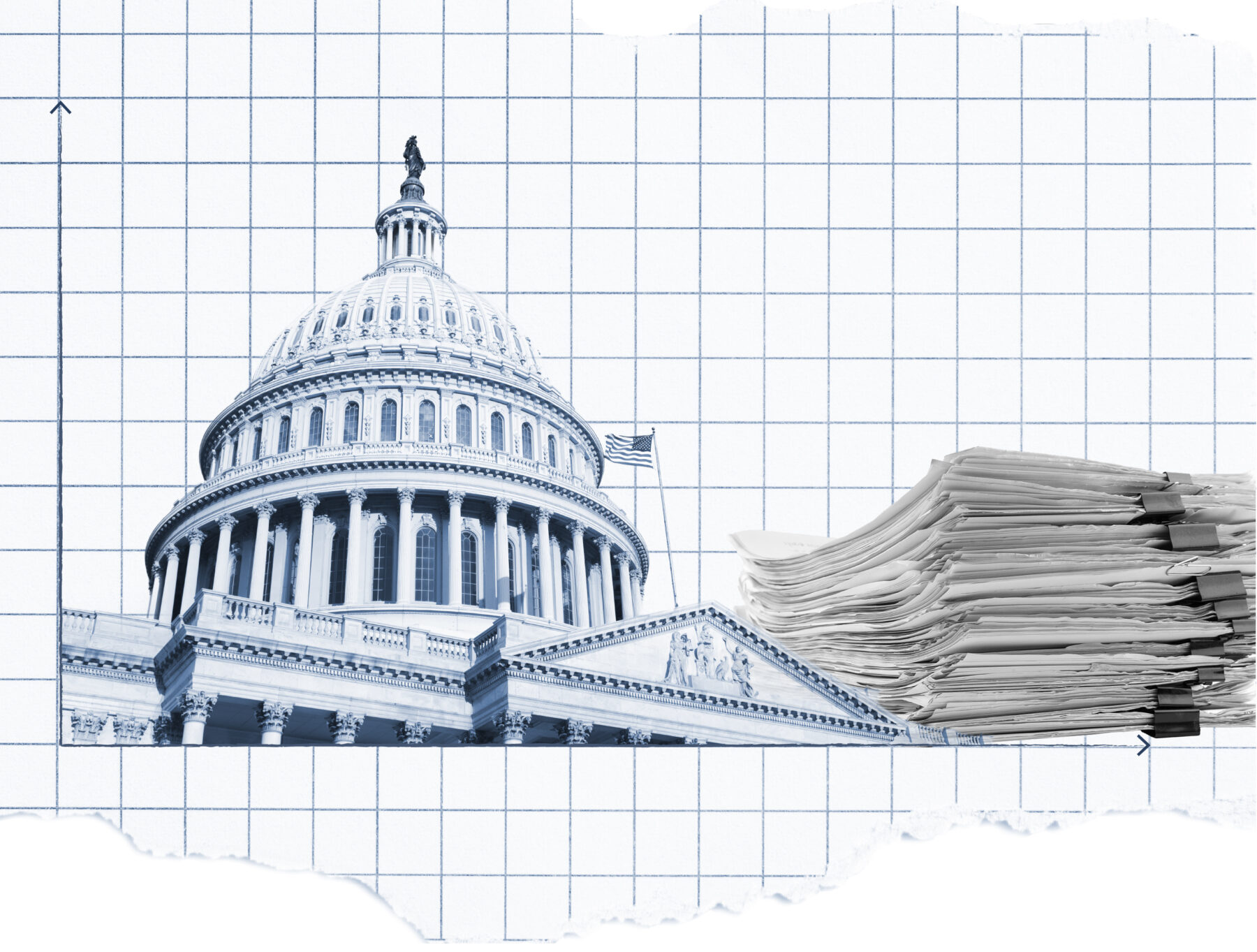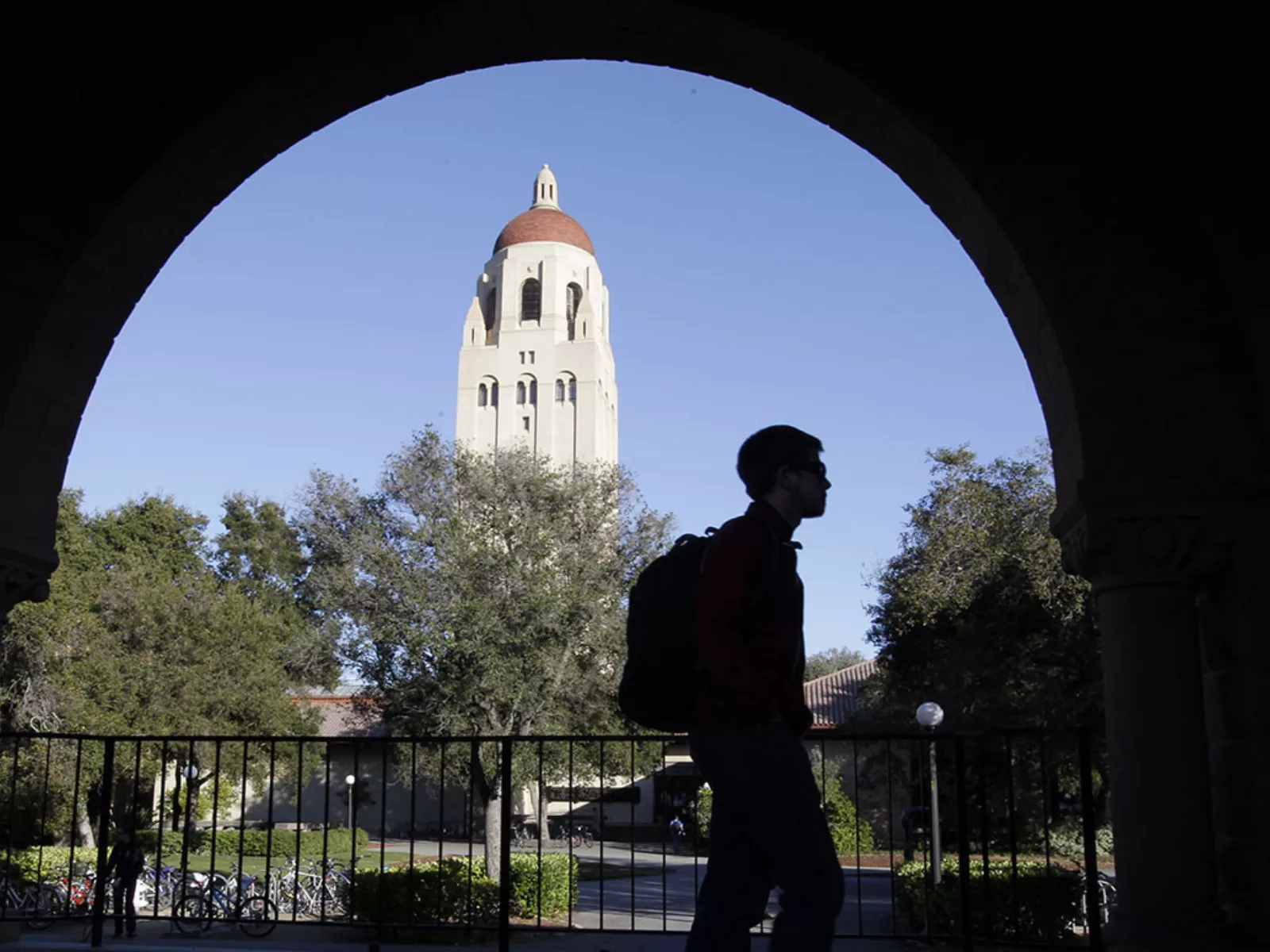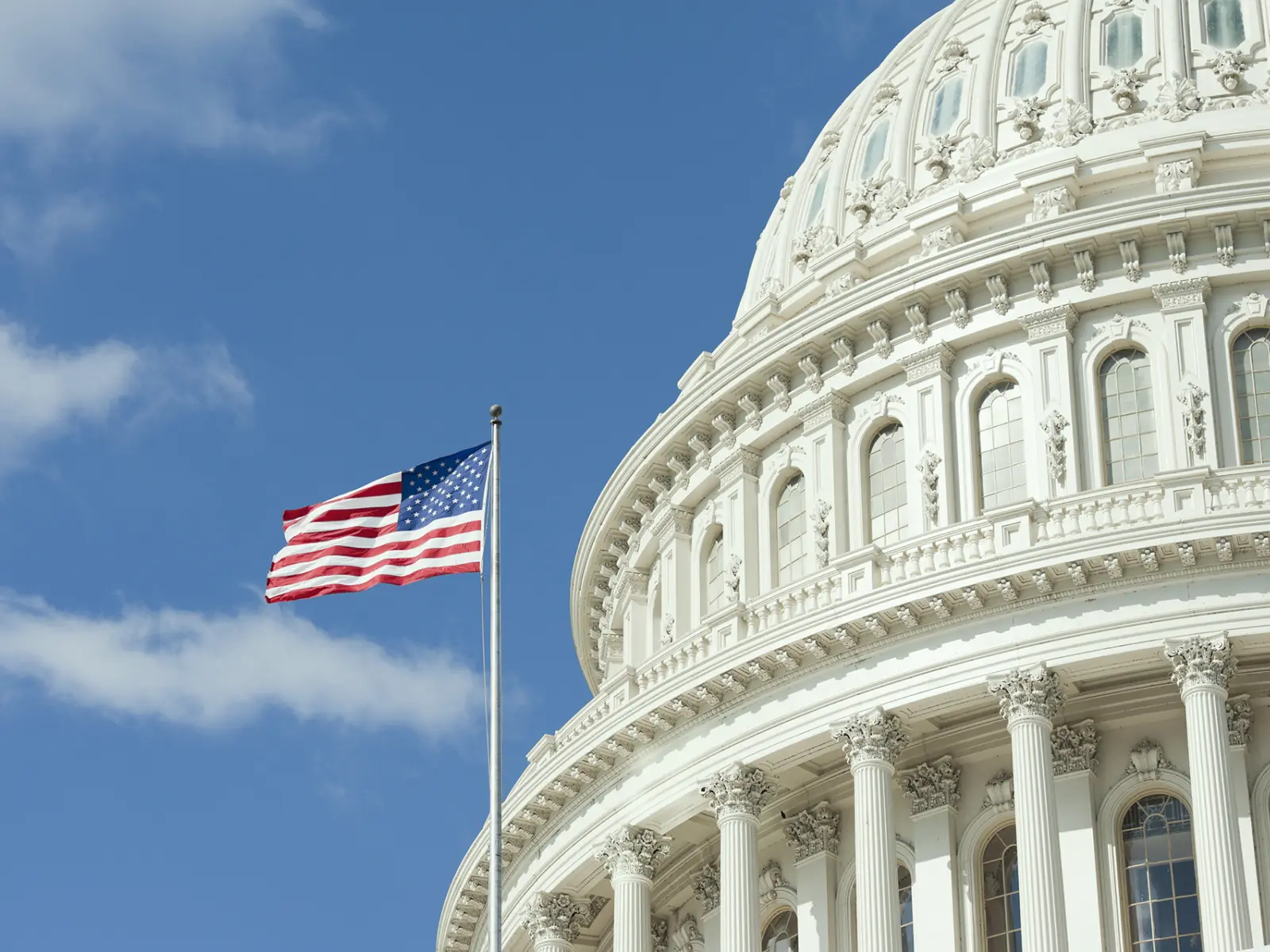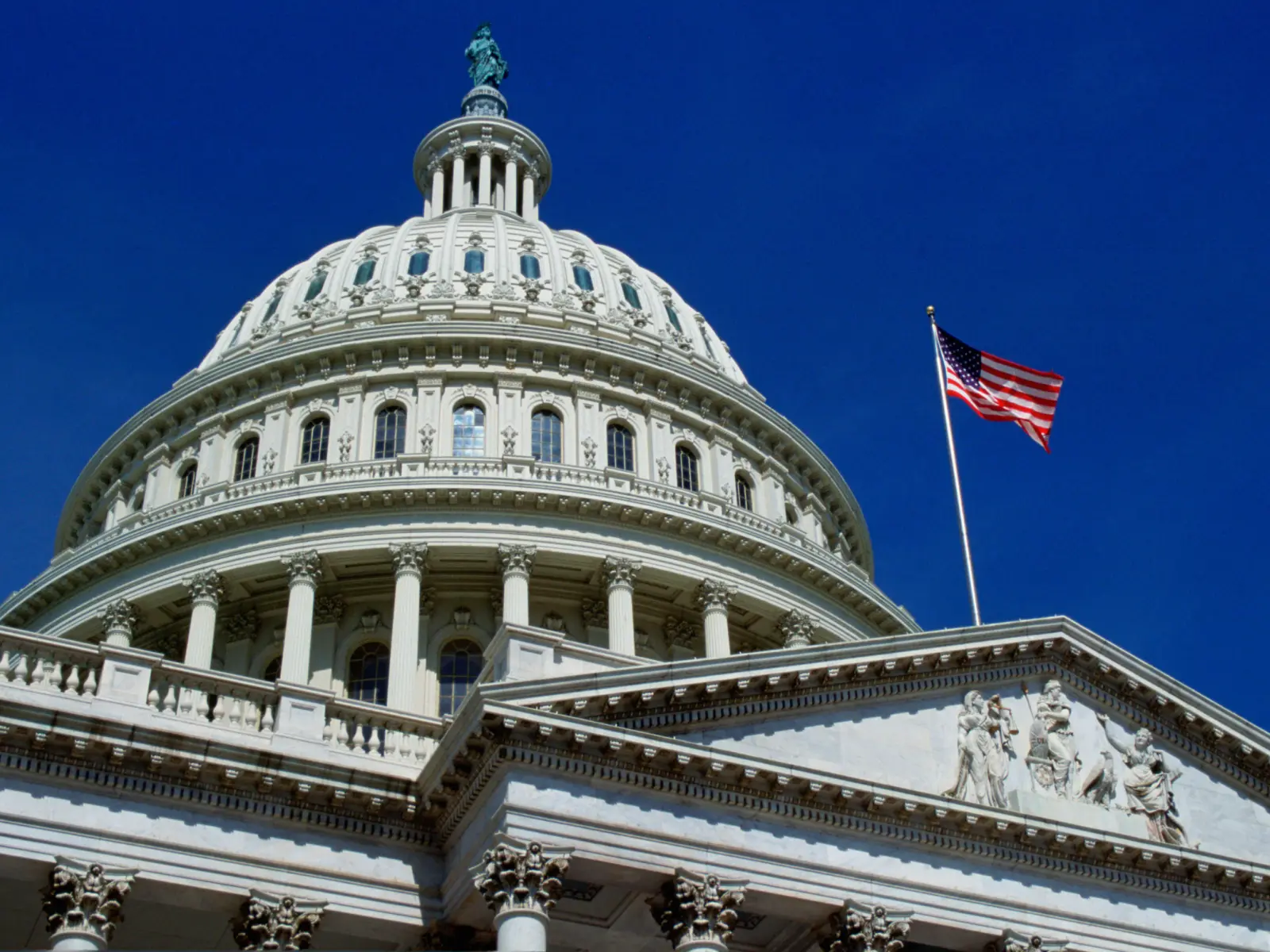In extending the Tax Cuts and Jobs Act, Republicans have cited increased economic growth that helps reduce the deficit as a top priority. Unfortunately, the current version of the “One Big Beautiful Bill” (OBBB) does not deliver on this promise. Credible outside budget models, including the Tax Foundation and Penn Wharton Budget Model, find negligible or even negative growth impact from the tax bill as written. There are two reasons for this: the temporary nature of the most pro-growth policies, and the economic drag created by large, deficit-financed legislation.
Pro-growth policies like bonus depreciation, expensing of research and development, and a more generous limitation on business interest deductions are set to sunset in 2029, limiting their growth potential. Making these provisions permanent would improve the legislation’s growth potential, but wouldn’t be cheap. The table below shows the cost difference between sunsetting them and making them permanent: roughly $470 billion.
PRO-GROWTH PROVISIONS
| If Sunset After 2029 | If Permanent | |
| Bonus depreciation | -$36,598 | -$369,150 |
| Research and experimental expenditures deduction | -$22,778 | -$136,243 |
| Broader interest deduction limitation (EBITDA) | -$39,554 | -$63,319 |
| TOTAL COST OF PRO-GROWTH PROVISIONS | -$98,930 | -$568,712 |
| NET DIFFERENCE | -$469,782 | |
*All values are in millions
Sources: JCX- 22 – 25 R, April 3, 2025 JCT estimate
That’s a serious price tag, and deficit-financing permanency would further undermine any growth benefits. Rather than just borrowing more, Congress should first dump tax breaks in the bill that reward special interests without helping the economy. Below, we highlight some of the most wasteful provisions in the legislation. Eliminating these could help to pay for making the pro-growth policies permanent.
WASTEFUL PROVISIONS TO ELIMINATE
| 10-YEAR COST | |
| Increase in qualfied business deduction to 23% | -$89,136 |
| Enhance employer-provided child care credit | -$731 |
| Enhance paid family and medical leave credit | -$5,454 |
| Tax credit for contributions to scholarship granting organizations (credit sunset 12/31/29) | -$20,442 |
| Above the line deduction for chartiable contributions (sunset 12/31/28) | -$6,947 |
| MAGA accounts and contribution pilot project | -$17,345 |
| HSA expansions and related health-related tax advantages | -$41,780 |
| Exclude interest on loans secured by rural or agricultural property (sunset 12/31/28) | -$1,095 |
| Expand low-income housing credit | -$14,110 |
| Exempt certain individuals from Global Intangible Low-Taxed Income (GILTI) | -$883 |
| Extend and modify the clean fuel production credit (sunset 12/31/31) | -$45,357 |
| Reduction of excise tax on firearms silencers | -$1,444 |
| TOTAL COST OF WASTEFUL PROVISIONS | -$155,588 |
*All values are in millions
Source: JCX- 22 – 25 R
The provisions listed above violate every principle of sound tax policy. They increase complexity, rather than simplify. They pick winners and losers, rather than reducing economic distortions. They’re a wish list of giveaways for rent seekers based on political power rather than economic growth, and they undo the simplification and economic neutrality achieved by the 2017 tax reform. Congress should resist the temptation to turn this bill into a Christmas tree and instead seize the opportunity to continue the work of pro-growth tax policy.
Congress originally intended the 199A deduction to bring tax parity between family businesses and large corporations. The OBBB’s changes to this deduction, however, not only go beyond the parity requested by those businesses, but inappropriately extends the deduction to Wall Street’s largest investment firms. The decision to extend 199A to Business Development Companies—large, closed-end investment funds that provide financing to other businesses — for example, makes a mockery of the original intent of the 199A deduction.
Or consider a provision that exempts certain income earned from “services performed” in the U.S. Virgin Islands from the Global Intangible Low-Taxed Income (GILTI) régime. While framed as a local economic development incentive, it only applies to investments made before 2025 – contradicting the “incentive” rationale. By design, it cannot incentivize new development; it merely rewards decisions that were already made — a retroactive windfall to a handful of fund managers performing investment management services from their laptops on the beach.
Other costly provisions in the bill aren’t grounded in evidence. For example, research fails to show that Health Savings Accounts (HSAs) reduce healthcare costs or improve outcomes. Under current law, HSAs already offer a double tax break — contributions are tax-deductible, and investment returns are tax-free. The bill proposes even more generous treatment, further expanding the cost of an already inefficient program often used as a tax-subsidized investment account by healthy and wealthy savers, along with industry giveaways such as allowing distributions to pay for gym memberships.
The same applies to new tax breaks for employer-provided gyms and spas. These benefits are of questionable benefit in increasing physical activity, even for the narrow group of people able to access such facilities. The policy just leads to more taxpayer dollars flowing toward expenses that would have been incurred anyway, with no public health benefit and negligible impact on economic growth.
Another proposal would reinstate the above-the-line charitable deduction. But as the Penn Wharton Budget Model found after a similar version was enacted in the CARES Act, this policy is a poor tool for boosting charitable giving. Of the $2 billion price tag in the CARES Act version, only about $110 million — or 6 percent — likely resulted in new donations. The other 94 percent subsidized giving that would have happened anyway. With deficits already spiraling, we can’t afford this kind of ineffective spending.
Eliminating these special interest breaks would free up about $155 billion to make permanent the truly pro-growth business provisions mentioned earlier, leaving a hole of $315 billion to offset the full cost of permanency.
Closing the remaining gap is easy. Two commonsense policies can raise the additional $315 billion. Stock buybacks offer more favorable tax treatment compared to dividends, creating a distortion in which corporate distribution decisions are made for tax reasons rather than economic reasons. Reducing this distortion by raising the excise tax on buybacks from 1% to 4% can raise $246 billion. In addition, tax-motivated round-tripping creates an uneven playing field between Main Street businesses that must pay the full U.S. tax rate on their profits from sales to U.S customers and multinational corporations with round-tripping structures, which pay a tax rate as low as 10.5%. Closing this loophole and charging round-trippers the same 21% corporate tax rate paid by domestic businesses can raise $69 billion. Together, these two fixes – which level playing fields currently distorted by tax loopholes – raise exactly the $315 billion needed to make the temporary pro-growth business tax relief permanent.
NEW AV OFFSETS
| 10-YEAR SAVINGS | |
| Repeal tax deduction for round-tripping | $69,000 |
| Increase stock buybacks excise tax to 4% | $246,000 |
| TOTAL POTENTIAL SAVINGS | $315,000 |
*All values are in millions
Source: Arnold Ventures
Tax cuts without the growth just lead to higher deficits, inflation, and interest rates. That’s why Moody’s recently downgraded the credit rating of the federal government’s debt. When special-interest giveaways are prioritized over policies that truly support growth, that growth will fall well short of Congress’s goals. Fortunately, Congress still has time to fix the bill to achieve the growth necessary to address our nation’s deteriorating fiscal outlook.



















